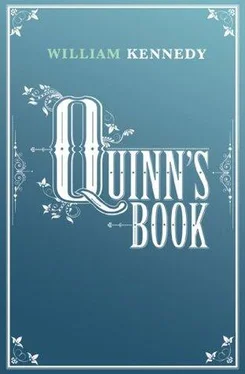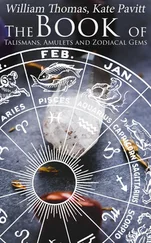“I have. I was with her today. We took a carriage ride.”
“So you’ve said. That’s quite extraordinary. But no one has seen her since last night.”
“I have. We took a carriage ride.”
“I think you should stop saying that.”
“It’s the truth.”
“It’s your truth. It’s certainly not my truth. I wasn’t out for a ride with anybody today.”
“I didn’t say you were.”
“But you keep contradicting me. The fact is that no one wants you around here. You come in and use the razor and sit on the veranda and reject my food and now you tell me I’m a liar.”
“I didn’t say that. Where is Maud, anyway?”
“We would all prefer it if you went somewhere else and asked your questions.”
“I want to see Maud.”
“You’ll have a long wait. She’s run away with my roan stallion.”
“She knew I was waiting for her.”
“She took her bag.”
“She took her bag?”
“No one has seen her since last night.”
“I have. Where is Magdalena? Where is John?”
“They don’t want to see you. You better go along now, like a good fellow. My carriage will take you to the village.”
“How do I know Maud is gone?”
“No one has seen her since last night.”
“I have, we took a carriage ride.”
Obadiah stood up. Quinn resisted standing, but here was the man ejecting him from his home. Quinn stood.
Two days later he returned and asked for Maud. The footman said she had not been seen in three days. Quinn asked to see Magdalena and John but was told they were not at home. The footman told Quinn he was no longer welcome at the Griswold estate.
Quinn returned to Mrs. Trim’s rooming house on Phila Street and stood looking out of the window of his room at people walking and talking with one another on the sidewalk. He grew irrationally jealous of these amiable strangers and decided to lie upon his bed until the jealousy passed. He lay there, staring at the ceiling, until he felt the energy of his hostility wane. He perceived that he was not angry with Maud. He dwelled on that and felt humiliated, abandoned, and lost yet again. This condition sickened him, an emetic to his soul.
He went back to the window and looked down at the people on the street. They had become normal. He liked them now, liked the way they preened in their finery: fashion on the hoof, style on parade.
He framed Maud’s face in his memory.
This girl, he said to himself, is beyond your control. She has excluded you from her future. Well, so be it. Forget her. This part of my life is over and I will suck up to no one. I am done with all the tattered nonsense of first love. The word itself caught in my throat: love. In the years ahead I would be unable to abide all the fatuous love palaver that would assault my ears. Humming “Kathleen Mavourneen,” I packed my bag. But I caught myself humming and knew what it meant. I stopped humming, thinking: Done. Yes. Done.
The malevolent and terrifying thing shall of itself strike such terror into men that almost like madmen, while thinking to escape from it, they will rush in swift course upon its boundless forces.
— LEONARDO DA VINCI
A Bazaar of Enticement Albany, Summer 1864
WE WILL NOW TALK of events that take place in fact and memory after Daniel Quinn, that orphan of life, now twenty-nine years of age, arrives by train at Albany from the mudholes of hell. Quinn, for more than two years, has been traveling with the Union Army, interviewing generals, captains, and soldiers of the line, writing about their exploits at Spotsylvania, Cold Harbor, Monocacy and elsewhere, describing their casualties, camp life, army food, the weather, incompetent surgeons, Southern women.
The day in Albany is intermittently sunny and overcast, and the clerk of the weather says no rain is expected, that Albany’s long drought will continue, and that passing rain clouds are merely illusory elements in a dry world. Quinn has already bought a horse and saddle, the mode of travel that has become part of his being, and is riding, at an ambling gait suited to the slowness of his mind, toward the Staats mansion of revered history. The waters of the Staatskill course toward him as he ascends the hill, arousing in him thoughts of time spent near other water. .
He was then riding with the Forty-fourth out of Albany, camped on one bank of the Rappahannock, with rebel troops camped on the other. For two days men of both camps swam in the river under an unspoken truce. Jim Lynch from Saratoga broke the silence when he swam to the rebel shore and yelled to the nearest reb, “You got a newspaper we can read?” The reb waved one at him and Lynch waded to shore, naked, took the paper and thanked the reb, swam back with one hand high, and gave the paper to Quinn. It was from Richmond, only days old.
In a day’s time the swimmers were killing each other. In three days’ time Quinn, walking the battlefield seeking survivors among the dead thousands, heard a wounded reb ask for water. Quinn gave him his canteen and let the reb drink his fill. Then he wet the reb’s leg wounds with the remaining water. Quinn considered this a fair exchange for the Richmond newspaper. The reb could not move, but he would not die of his leg wounds. The water will cool, it will loosen, it will cleanse. It will be interesting, important to the reb. But do not touch him.
The reb thanked Quinn by telling him of his optimism before battle. Such optimism was an inversion. It was based upon the vision of his wife beckoning him into the barn with their secret love gesture. The reb knew this was a temptation sent to him by the devil. He knew the barn was death and that his wife would never invite him into death’s hayloft.
The reb was of North Carolina stock, strong of face and form, and Quinn knew he had farmed all his life. He revered Longstreet and grieved over the outcome of the battle. He had not known defeat in two years of war. Quinn covered the reb’s legs with a blanket taken from a dead reb’s bedroll, then found a rebel canteen and filled it for the reb in the river. He filled his own canteen and rinsed the taste and touch of the reb from its neck. He walked across the darkening field, where the broken artillery was strewn, but found no other survivors. Six horses stood hitched to a limber, all with limp necks, all erect in harness: twenty-four legs in an upright position, dead.
Quinn patted the neck of his new horse of the Albany instant, thankful for its life, trustful of its strength. It may be that I am coming out of death, he thought, though he sensed this was untrue, or at least a confusion. Probably he was still in death’s center and losing ground. But even the possibility of leaving death behind cheered him, and always there was the banal reality: he had survived and others had not. Such a thought made him as optimistic as the wounded reb before battle. Rubbing elbows with optimism calmed Quinn and he rode on toward the mansion.
At first glimpse he knew the mansion had grown. More rooves and towers rose up from it, more porches spanned its new girth. A Chinese roof topped one new wing and on another rococo carvings spun and curled upward and around new doors and archways, new pillars and dormers. Hillegond and Dirck are manic builders. Lost in a house suited for multitudes, they create yet more space for their solitary comings and goings.
Quinn circled the mansion to see what had become of the structures and gardens of his memory. Amos’s tomb and the pump and boat houses were as he remembered. A small, elegant structure was new (this was the shooting villa), but the gazebos and trellises looked as they always had, and today were brilliant with flowers, though the lawns that surrounded them were brown from the drought. All buildings were newly painted in the uniform colors of yore — a rich brown with beige trim — and all the brickwork was that same pale, rusty red.
Читать дальше












